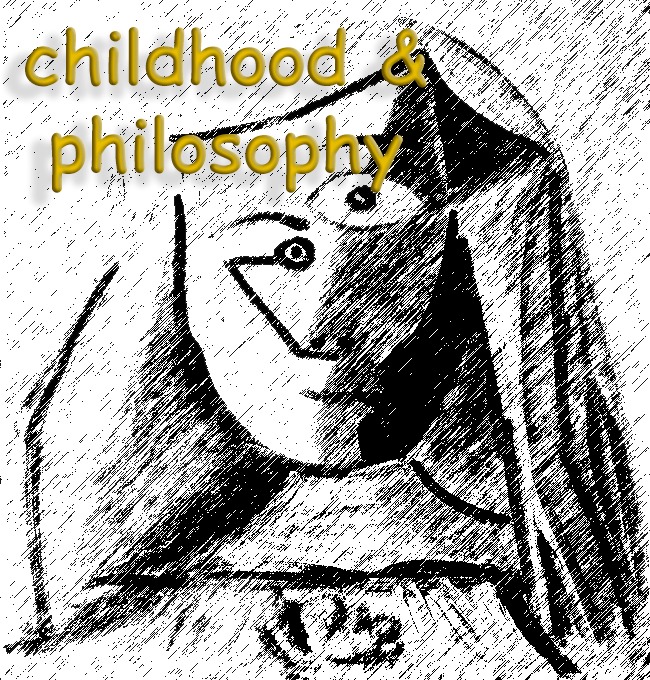is there a form of citizenship specific to philosophy for children?
DOI:
https://doi.org/10.12957/childphilo.2021.55786Keywords:
philosophy for children, democracy, habitus, lipman, dewey, bourdieuAbstract
Due to the obvious and widely studied Deweyan foundations in the educational program elaborated by philosopher Mathew Lipman, Philosophy for Children (P4C) is often presented as a continuation of Dewey’s democratic ideal, as a mode of associated living. I argue that there is a democratic model specific to Lipman’s P4C, that cannot be reduced to Dewey’s theories. To do so, I propose to compare Dewey’s and Lipman’s educational models through the Bourdieusian notion of habitus, understood as a set of lasting mental dispositions, following a specific social conditioning, revealed by some practical habits. Studying in depth Dewey’s and Lipman’s educational recommendations concerning inquiry does not only reveal that they are structured according to different rationalities, it also highlights the fact that they tend to develop different habits and dispositions in the child, that ultimately form two distinct citizen habitus. Dewey’s habitus could be called experimental and Lipman’s habitus dialogical and they both correspond to their respective reflections on democracy and the role a citizen should be playing. I conclude by highlighting the interesting possibilities that stem from the analysis and comparison of educational models through the notion of habitus.
Resumen: En razón de las indudables y ampliamente estudiadas fundaciones deweyana en la pedagogía elaborada por el filósofo Mathew Lipman, la filosofía para niños es generalmente presentada como una continuación del ideal democrático de John Dewey, como un modo de vida asociada. Sostengo que existe un modelo democrático específico a la filosofía para niños como la que fue elaborada por Lipman, que no se puede reducir a las teorías de Dewey. Para mostrar eso, propongo de comparar las pedagogías de Dewey y de Lipman a través de la noción bourdieusiana del habitus, entendida como un conjunto de disposiciones mentales duraderas, proveniente de un condicionamiento social específico, que se manifiesta por hábitos prácticos. Un estudio en profundidad de las recomendaciones educativas de Dewey y de Lipman en cuento a la encuesta no sólo revela que están organizadas por racionalidades diferentes, sino también que desarrollan hábitos y disposiciones diferentes en el niño, que últimamente forman dos habitus ciudadanos distintos. El habitus de Dewey se puede llamar experimental, y el de Lipman un habitus dialógico, los dos corresponden a sus reflexiones respectivas sobre la democracia y el rol del ciudadano. Concluyo subrayando las posibilidades interesantes que emerjan de la analiza y comparación de las pedagogías a través de la noción de habitus.Downloads
References
BLEAZBY Jennifer, Social Reconstruction Learning: Using Philosophy for Children & John Dewey to Overcome Problematic Dualisms in Education and Philosophy, University of New South Wales, 2007.
BOURDIEU Pierre, The Logic of Practice, Richard Nice (trad.), sans lieu, Stanford University Press, 1992.
BOURDIEU Pierre, « Habitus, code et codification », Actes de la Recherche en Sciences Sociales, vol. 64, no 1, 1986, p. 40-44.
DANIEL Marie-France, Michael SCHLEIFER et Pierre LEBOUIS, « Philosophy for Children: The Continuation of Dewey’s Democratic Project », Analytic Teaching, vol. 13, no 1, 1992.
DEWEY John, The Later Works of John Dewey, 1925-1953, Boydston Jo Ann (éd.), Charlottesville (USA), Etats-Unis d’Amérique, InteLex Corporation, coll. « The Collected Works of John Dewey, 1882-1953 », 2003, vol. 2: 1925-1927, Essays, The Public and its Problems.
DEWEY John, The Later Works of John Dewey, 1925-1953, Boydston Jo Ann (éd.), Charlottesville (USA), Etats-Unis d’Amérique, InteLex Corporation, coll. « The Collected Works of John Dewey, 1882-1953 », 2003, vol. 14: 1939-1941, Essays.
DEWEY John, The Middle Works of John Dewey, 1899-1924, Boydston Jo Ann (éd.), Charlottesville (USA), Etats-Unis d’Amérique, InteLex Corporation, coll. « The Collected Works of John Dewey, 1882-1953 », 2003, vol. 9 : 1916, Democracy and Education.
GREGORY Maughn Rollins, « Normative dialogue types in philosophy for children », Gifted Education International, vol. 22, 2007, p. 160-171.
KENNEDY David, « Lipman, Dewey, and the Community of Philosophical Inquiry », Education and Culture, vol. 28, no 2, 2012, p. 36-53.
LIPMAN Matthew, « Philosophy for Children’s Debt to Dewey », Pragmatism, Education, and Children, vol. 192, coll. « International Philosophical Perspectives », 1er janvier 2008, p. 141-151.
LIPMAN Matthew, Thinking in Education, 2e éd., New York, Cambridge University Press, 2003.
LIPMAN Matthew, Philosophy Goes to School, Philadelphia, Temple University Press,U.S., 1988.
OLIVERIO Stefano, « Accomplishing Modernity: Dewey’s Inquiry, Childhood and Philosophy », Education and Culture, vol. 28, no 2, Purdue University Press, 2012, p. 54-69.




